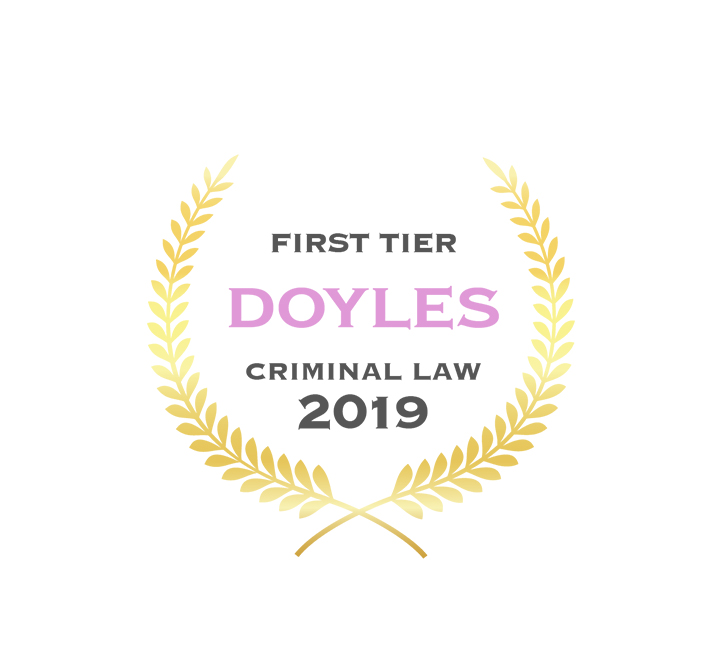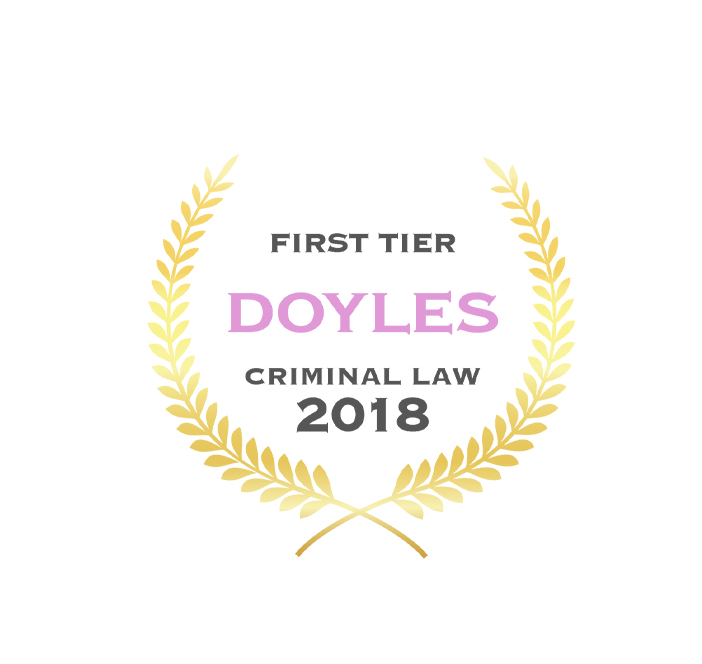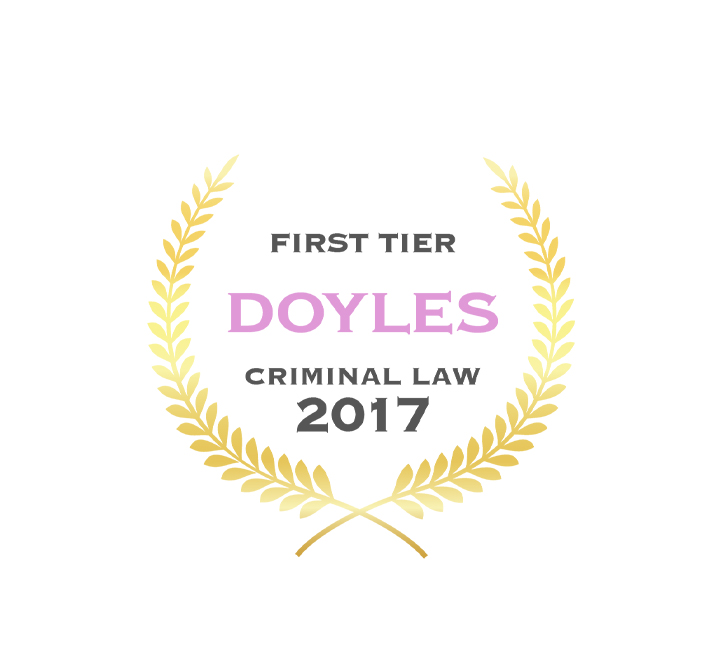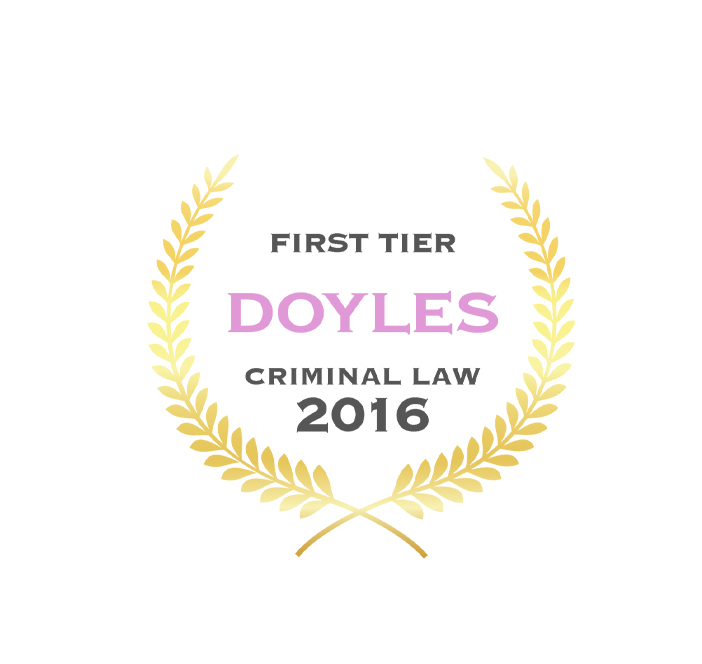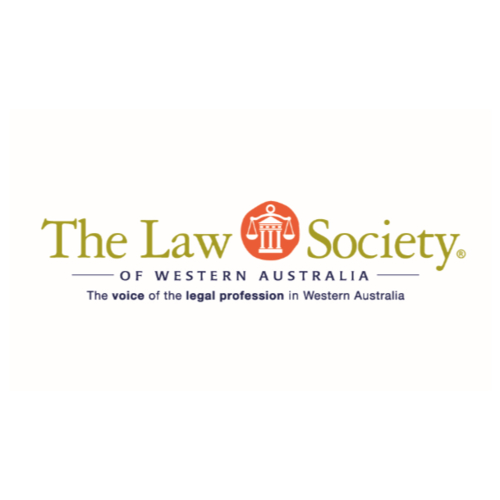To understand the criminal justice system, you need to know your rights when dealing with the police, how the criminal courts work – and how we can protect and guide you through the entire legal process.
Contact with the police
When investigating an alleged offence, the police may contact you, detain you as a suspect or arrest you. You have certain rights under the Criminal Investigation Act (WA). Federal legislation gives similar powers to the police. The police have wide search and seizure powers, wide powers to take DNA and fingerprints from you, and even conduct internal searches.
Understanding your rights
Your principal rights are the right to silence, and the right to speak to a lawyer or friend.
In Western Australia, no negative inference can be drawn from exercising your right to silence. This means a jury or magistrate will not hear about you exercising this right.
“Your principal rights are the right to silence and to speak to a lawyer or friend.”
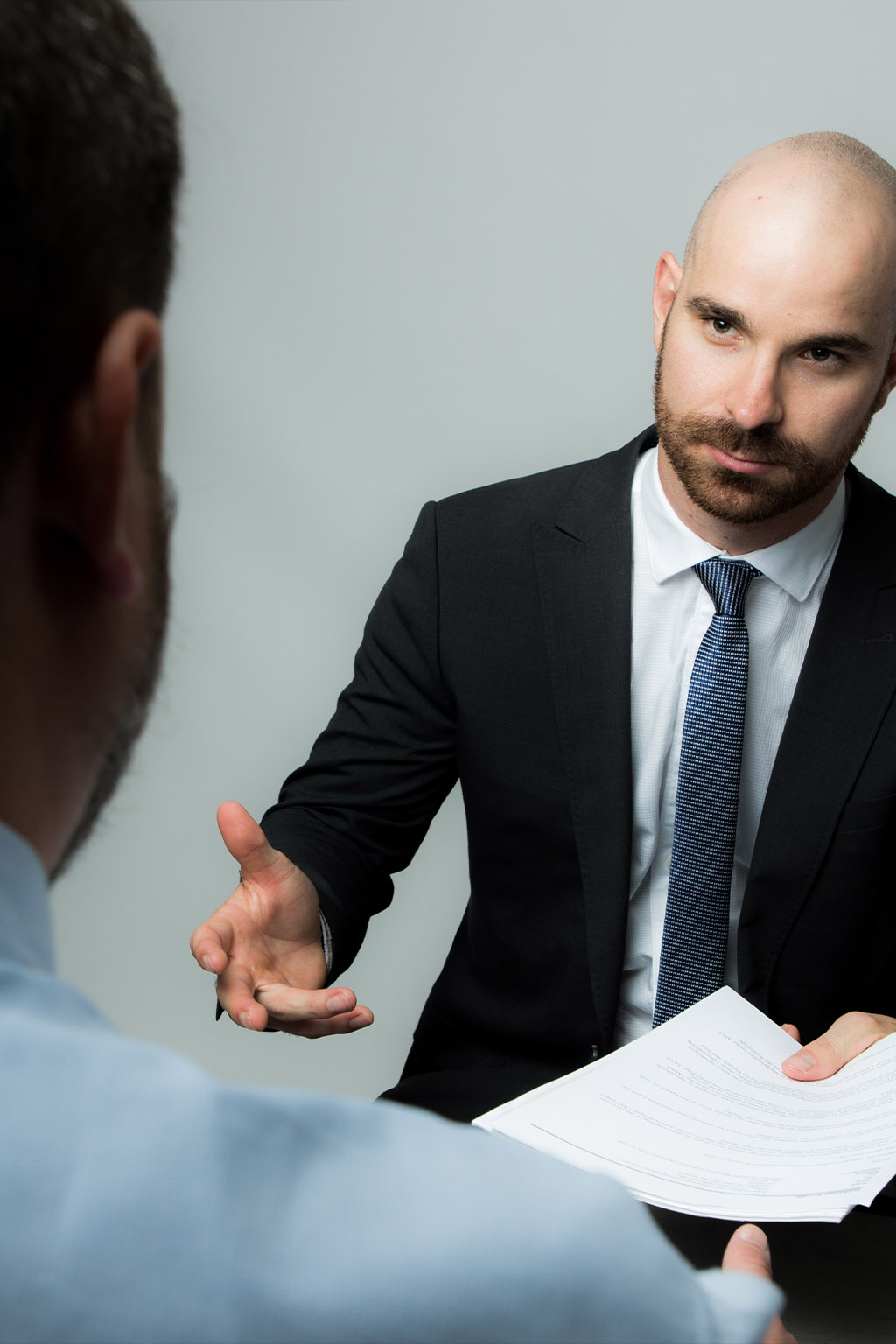
Get legal advice before talking to
the police or appearing in court.
You exercise your right by saying the words, “I am exercising my right to silence”.
- If you forget the above words, the phrase “no comment” on its own is exercising your right to silence.
- If you answer some questions and refuse to answer others, you are not exercising your right to silence.
- Never refuse to go on video; just exercise your right to silence on video. This way, the police will find it difficult to say that you confessed off camera. We have had many clients who have exercised their right to silence and not been charged or later had their charges dropped.
You exercise your right to speak to a lawyer by saying the words, “I want to speak to a lawyer”.
- You can exercise this right from the time you are arrested under suspicion of committing an offence.
- If you are denied your right, request that you be put on video and state your right has been refused on video.
- Police sometimes will not allow you a phone call to a lawyer. Don’t panic; stay silent.
Exception: Electronic Codes & Data Access Orders
The right to silence does not apply if you have been asked by the police for the PIN code of a phone or device like a computer or tablet. When questioning you, or if the police have given you a data access order:
- If the electronic device is yours, and you know the PIN code for the device, you must provide the pin code to the police.
- If you do not give the PIN code to the police, you may be issued with an offence under the Criminal Investigation Act.
- If the police can prove beyond reasonable doubt to a court that the device is yours, and you knew the PIN code and intentionally did not give the code, you will have committed an offence.
- Police will use all relevant information on the device against you.
Exception: Proceeds of Crime Squad
The right to silence does not apply if the police are from the Proceeds of Crime Confiscation Squad/Team. When questioning you:
- You have to answer to the best of your knowledge and belief their questions on matters relating to assets including money.
- You should ask what Squad or Team the officers are from? The police should inform you that they are from the Proceeds of Crime Confiscation Squad/Team. If the Police are from Proceeds of Crime Investigation Team [Money Meth Team], you have a right to silence.
- You should ask if you have a right to silence? The police should inform you that you have no right to silence. If the police say you have a right to silence, you should exercise your right to silence as discussed above.
Providing personal details
Subject to certain exceptions such as confiscation matters or the pin code to a mobile or electronic device if it is yours and you know the pin, if you are arrested or detained as a suspect, the police can only seek personal information such as your identity, address and date of birth.
If a car is involved, you must name the driver.
The police, in certain circumstances, can suspend your rights such the right to speak to a lawyer or friend. The police have certain investigative powers such as the right to take DNA and fingerprints. The police also have certain powers of search and seizure.
“Know your rights – know the law.”
Conversations with your lawyer are protected by legal privilege.
Conversations with other persons are not.
The police regularly check the media sources and may monitor telephone conversations or texts of suspects. Note that prison calls are monitored and listened to by the authorities and used by the police as evidence.
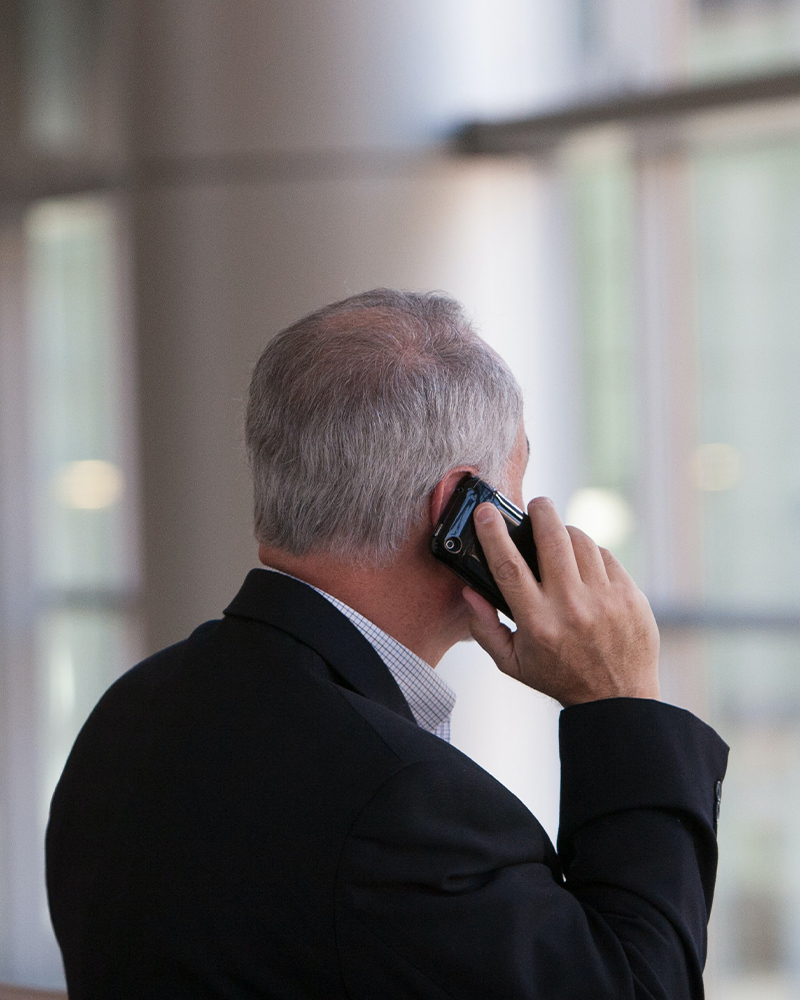
You should never talk about your case with anyone but your lawyer and never to other persons or on social media.
After your arrest or detainment
After your arrest or detainment, any of the following may occur:
- You may be released or unarrested.
- The police may later issue a summons for you to attend court.
- You may be released on bail by the police and given a court date.
- You may be refused bail and be taken to a holding facility such as the police lockup or a prison remand facility.
If you are refused bail, you must be taken before a court as soon as practicable where you have the right to apply for bail. If refused bail by the police, you should never apply for bail in court without a lawyer. If a magistrate refuses you bail, then you may only have a right to appeal to the Supreme Court.
 What happens at the Magistrates Court?
What happens at the Magistrates Court?
When you arrive
When you arrive, present yourself to the security officer who sits towards the rear of the court behind the prosecutor.
If we are representing you, you should tell them you are represented by Porter Scudds. We will be there or have your matter held until we are there.
Wait until the security guard has called your name. You will be waiting in the courtroom with all other individuals who have their court appearance in that court. You may be nervous; this is normal.
Generally speaking, we will be sitting at the front of the courtroom while the accused sit in the back of the court.
When your name is called
If you are represented by Porter Scudds – you will approach and stand next to us at the front of the court.
If you are unrepresented –approach the court, standing on the opposite side to the prosecutor.
Charges
The magistrate may read the charges and ask you if you understand the charges and whether you are represented.
If you are unrepresented and wish to seek legal advice, tell the magistrate and ask for an adjournment to allow you to do this. Contact Porter Scudds immediately.
Pleading Guilty or Not Guilty
If you plead guilty, the facts of the offence are read out. If you dispute the facts, there may be a trial on the facts. Apart from you voicing the word “guilty”, we will be your voice in the courtroom. We understand that there are two sides to every story.
If you are unrepresented, the facts of the offence are read out. The magistrate will proceed to sentence you. They may ask you questions; however, many matters may mitigate your sentence that may not be raised. If you dispute the facts, there may be a trial on the facts.
If you plead not guilty, your matter is listed for trial. To make sure your lawyer is available, only do this with your lawyer present. We appreciate that trials are an intimidating experience, and will use our expertise and skills to prepare both your trial and you for your trial.
The trial process can be confusing, and there are rules to follow and legal obligations for you to fulfil. We will tell you what happens at trial and guide and represent you through the process. We will know the evidence against you and how to argue your defence.
“Know court procedures – know you have a skilled lawyer.”
 What happens at the District or Supreme Court?
What happens at the District or Supreme Court?
You should never go to these courts without a lawyer. There will be a lawyer from the Director of Public Prosecutions advancing the case against you.
If you plead guilty, the facts of the offence are read out by the prosecutor. Other than you saying the word “guilty”, we will be your voice in the courtroom. We understand that there are two sides to every story.
If you plead not guilty, your matter is listed for trial. To make sure your lawyer is available, only do this with your lawyer present. We appreciate that a trial before a judge and jury is an intimidating experience. We will use our expertise and skills to prepare your trial and prepare you for your trial.
The trial process
The trial process in the District or Supreme Courts is complex, and there are many rules and legal obligations to fulfil. We will tell you what happens at trial and guide and represent you through the process. We will know the evidence against you, prepare the matter for trial, which experts you require, decide what evidence needs to be summonsed to court, and prepare you for trial.
Generally speaking, you will go through the following procedures when you visit the District or Supreme Court for your trial.
We will be your voice and guide in the below process on the morning of your trial in the District or Supreme Courts, which typically proceeds as follows:
- You must surrender yourself into custody on the morning of the trial.
- You will be taken from custody into the court.
- The trial will start with your name being called by the judge’s associate and your plea of not guilty entered.
- A jury will be chosen. You will have three challenges to any jurors.
- The trial will start.
 What happens at trial?
What happens at trial?
The general trial process is the same in the Magistrates Court and the superior court like the District or Supreme Courts. You need to have a lawyer skilled in negotiating and representing you through the processes of the relevant courts and the rules of evidence.
The Magistrate is both decision-maker of the facts and the law applying to those facts. In a jury trial, the jury only decides the facts and the judge decides what law the jury can apply to those facts. Legal argument takes place in the absence of the jury.
The significant difference between a Magistrates Court trial and a jury trial is that in the former, the Magistrate (a former lawyer) decides your fate. In the latter, 12 persons from the community decide your fate.
In some cases, an accused person, usually with the consent of the prosecution, can elect a trial by judge alone.
Based on our experience, we recommend that, wherever possible, clients elect a jury trial. Although a judge is less likely to be swayed by media reports, they may be perceived as being elite and less in touch with grassroots issues, everyday life and the general community.
“Know the law of evidence – know you have a skilled lawyer.”
The trial process
- In the District or Supreme Court, the jury is selected.
- The prosecutor commences with an address to the jury or magistrate, outlining the State or Commonwealth case against the accused.
- After the prosecutor’s opening address, the defence may also address the jury or magistrate.
- The prosecutor then calls witnesses to give evidence, whom the defence can cross-examine.
- After the cross-examination has finished, the prosecutor may re-examine the witness to clarify the evidence presented in cross-examination.
- The defence then calls their evidence including witnesses whom the prosecution can cross-examine and the defence re-examine.
- The prosecutor does a closing address; the defence then does a closing address to the jury or magistrate.
- In a jury trial, the judge also does a closing address to the jury.
- The jury or magistrate then decides guilt or innocence.
Who is the jury?
The jury is called a ‘jury of your peers’ because it is made up of 12 men and women randomly chosen from the community, and may be homemakers, truck drivers, office workers, subcontractors, retirees, students or from a range of backgrounds and professions.
In jury selection, both the prosecution and the defence get the chance to object to three potential jurors.
Judges often instruct juries not to read media coverage of a trial or take notice of gossip, or to discuss the trial with people outside the jury room. As there is a risk that a juror may ignore this warning, you should never talk about your case with anyone but your lawyer and never to other persons or on social media. The jury may see your social media images or comments: be smart about it.
After the trial
If you are found not guilty in a Magistrates Court, District Court or Supreme Court, the matter ends there.
If you are found guilty or plead guilty, you may be sentenced on that day or on another day to allow for court reports about you.
On an acquittal, legal costs may be awarded to you in the Magistrates Court but never in the District or Supreme Courts.

 (08) 9430 4222
(08) 9430 4222 
